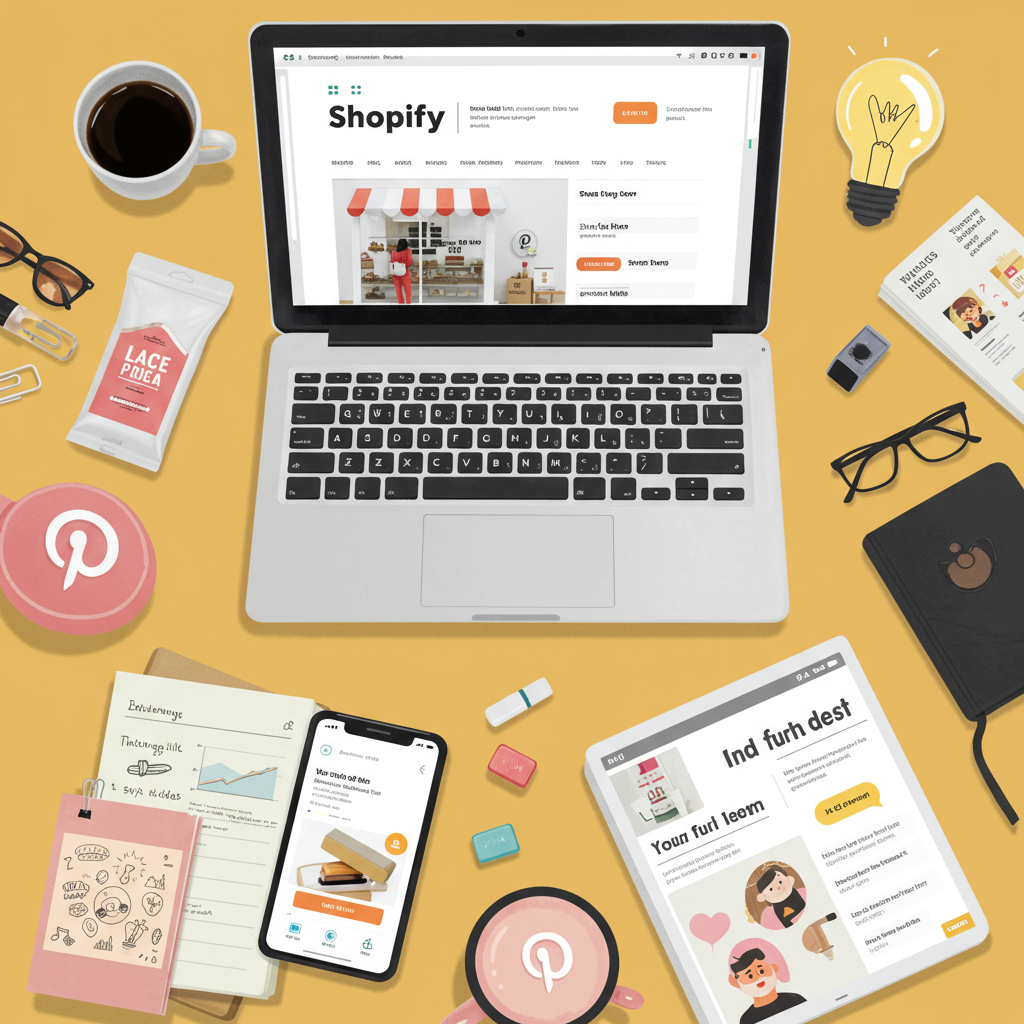Discover how leveraging the power of Pinterest influencers can transform your Shopify store’s reach and sales.
As an e-commerce entrepreneur, I’m always on the lookout for innovative ways to expand my store’s visibility and connect with new customers. One platform that consistently stands out for its unique potential is Pinterest.
Unlike other social media channels, Pinterest functions more like a visual search engine and discovery tool. People go there to find inspiration, plan purchases, and discover new products.
This makes it an incredibly fertile ground for e-commerce, especially for Shopify merchants like us who rely heavily on compelling product visuals.
But how do you cut through the noise and get your products seen by the right audience? My answer: Pinterest influencers.
I’ve found that partnering with the right Pinterest creators can be a game-changer. They bring authenticity, established trust, and a highly engaged audience directly to your brand.
The beauty of Pinterest influencers is their ability to curate and inspire. Their followers aren’t just scrolling; they’re actively looking for ideas and products to save and eventually buy.
So, where do you begin your search for these valuable partners? I usually start by exploring Pinterest itself.
I search for keywords related to my products or niche. Look for popular boards, highly-saved pins, and profiles with a consistent aesthetic and strong follower count.
Another effective method I use is looking at what my competitors are doing. Are there specific influencers they’ve collaborated with? This can provide a great starting point.
Beyond direct Pinterest searches, I also consider influencer marketing platforms. While some are broad, others specialize in visual platforms, which can streamline the discovery process.
Once I’ve identified potential influencers, the vetting process is crucial. It’s not just about follower numbers; engagement is key.
I meticulously check their ‘saves’ and ‘clicks’ on pins, not just likes or comments. These metrics truly indicate how inspiring and actionable their content is.
Their audience demographics must align perfectly with my target customer. I want to ensure their followers are genuinely interested in what my Shopify store offers.
The quality and aesthetic of their existing content are paramount. Does it match my brand’s visual identity? Is it high-resolution and professional?
When reaching out, I always craft a personalized and professional message. I clearly outline my proposal, explaining why I believe their audience would resonate with my products.
Be prepared to discuss compensation. This could range from free products, affiliate commissions, or a flat fee, depending on the influencer’s reach and your budget.
I always recommend having a clear agreement or contract in place. This protects both parties and outlines deliverables, timelines, and payment terms.
There are various collaboration types I’ve explored. Sponsored pins are a staple, where the influencer creates and promotes a pin featuring your product.
Board takeovers can be exciting, allowing the influencer to curate a board on your brand’s profile for a set period, bringing their unique style and audience.
Product reviews and showcases, especially those integrated into lifestyle content, tend to perform exceptionally well because they feel authentic and less like an advertisement.
For Shopify merchants, ensuring your store is Pinterest-ready is vital. I always make sure my product images are high-quality and my Shopify store utilizes Rich Pins.
Rich Pins automatically pull product information like price and availability directly from your Shopify store, making the user experience seamless and trustworthy.
Tracking success is non-negotiable. I use UTM parameters on all links provided to influencers. This allows me to see exactly how much traffic and sales are generated from their efforts in my Shopify analytics.
Pinterest Analytics also provides valuable insights into pin performance, saves, and clicks, helping me understand what content resonates most.
My goal is always to achieve a positive return on investment. By carefully tracking, I can refine my strategies and identify the most effective partnerships.
Remember, Pinterest is a long-game platform. Pins have a much longer shelf-life than posts on other platforms, meaning your influencer content can continue to drive traffic and sales for months, even years.
I’ve found that patience and consistent effort in building these relationships truly pay off.
What do you think about this approach to Pinterest influencer marketing for Shopify stores? I’d love to hear your thoughts and experiences.
In conclusion, leveraging Pinterest influencers has been a powerful strategy for my Shopify store. It’s about building genuine connections and inspiring potential customers.
It’s a visual journey that, when executed thoughtfully, can lead to significant growth and brand recognition for your e-commerce business.






